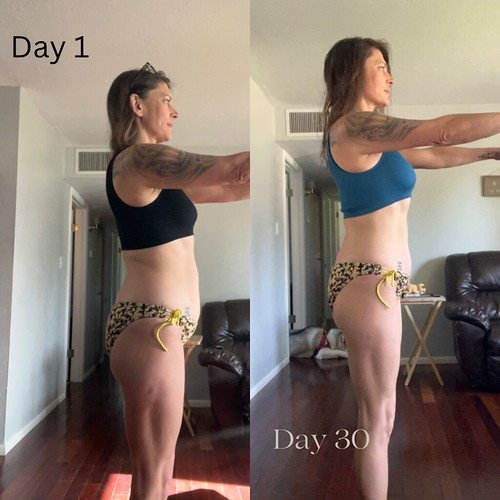
Many people turn to fat burners in their quest for weight loss, hoping to speed up their metabolism and shed those extra pounds. But what happens when you decide to stop taking them? It’s a question worth exploring, especially since the effects can be more complex than you might think.
When you stop using fat burners, your body may react in unexpected ways. You might experience changes in energy levels, appetite, and even weight fluctuations. Understanding these effects can help you make informed decisions about your weight loss journey and maintain sustainable results. Let’s dive into the implications of discontinuing fat burners and what you can do to navigate this transition effectively.
What Happens When You Stop Taking Fat Burners?
Stopping fat burners can lead to significant changes in your body.
- Energy Levels Decrease
Energy levels often drop after discontinuing fat burners. Without the stimulants that many fat burners contain, fatigue may set in, affecting daily activities and exercise routines.
- Appetite Increases
Appetite may spike once fat burners are halted. The thermogenic effects of these supplements often suppress appetite, so their absence can lead to increased cravings for food, particularly high-calorie snacks.
- Weight Fluctuations Occur
Weight fluctuations can happen within weeks of stopping fat burners. Many users experience a rebound effect, where weight gain occurs due to increased appetite and decreased metabolism, impacting long-term weight management goals.
- Metabolism Slows Down
Metabolism may slow after ceasing fat burners. The body might adapt to the effects of the supplements, and once they’re removed, metabolic rates can drop, making it harder to maintain weight loss efforts.
- Withdrawal Symptoms May Appear
Withdrawal symptoms can manifest when ceasing fat burners, especially if taken for a prolonged period. Users might experience headaches, irritability, or mood swings due to the sudden absence of stimulatory compounds.
- Fitness Performance Changes
Fitness performance can decline after stopping fat burners. Reduced energy may lead to decreased workout intensity, impacting strength and endurance levels during exercise.
Understanding these effects enables informed decisions regarding fat burner usage and helps in creating a sustainable weight loss strategy.
Physical Effects of Discontinuation
Discontinuing fat burners can trigger several physical changes that may affect weight management. Understanding these effects helps navigate the transition.
Changes in Metabolism
Stopping fat burners often results in a slower metabolism. Fat burners typically enhance metabolic rate, and ceasing their use can decrease this heightened state. Research indicates that metabolism may drop by 5-10% following discontinuation (Harvard Health Publishing, 2020). When metabolism slows, the body burns fewer calories at rest, leading to potential weight gain if dietary habits remain unchanged. This decline can make it harder to maintain the weight loss achieved while using supplements.
Weight Fluctuations
Weight fluctuations frequently occur when stopping fat burners. The rebound effect, common after discontinuing stimulant-based supplements, can lead to increased appetite and cravings. Studies show that individuals may regain 1-5% of body weight within a few weeks after ceasing fat burners (Journal of Obesity, 2019). This fluctuation can be discouraging and may instigate unhealthy eating patterns, complicating efforts to achieve a sustainable weight. It’s crucial to adopt a balanced diet and consistent exercise routine to prevent excessive weight gain during this adjustment period.
Psychological Effects of Stopping
Discontinuing fat burners can lead to various psychological changes. It’s common to experience mood swings and fluctuations in motivation levels after stopping these supplements.
Mood Swings
Mood swings often occur when stopping fat burners. Reductions in stimulants can trigger irritability and heightened emotional sensitivity. I may find fluctuations in mood, leading to feelings of frustration or sadness. These emotions may stem from reduced energy and changes in body chemistry, impacting overall emotional well-being. Recognizing these shifts is vital for managing feelings effectively during this transition.
Motivation Levels
Motivation levels frequently decline after ceasing fat burner use. Without the energy boost provided by these supplements, I may feel less inspired to engage in physical activities. This lack of motivation can create a cycle of inactivity, making it harder to stick to weight loss goals. Establishing a routine that incorporates regular exercise and setting achievable goals can counteract this decline in motivation, helping maintain focus on overall health and fitness priorities.
Long-Term Consequences
Discontinuing fat burners can lead to several long-term consequences, impacting both physical and psychological health.
Risk of Weight Regain
Stopping fat burners often results in a considerable risk of weight regain. Research shows that individuals may regain 1-5% of their body weight within weeks after halting these supplements. This rebound effect occurs as metabolism slows, and appetite tends to increase, leading to higher caloric intake. For example, some individuals report cravings for high-calorie foods, which can counteract previous weight loss efforts. Maintaining a balanced diet becomes essential to prevent weight gain during this transition.
Impact on Muscle Mass
I notice that ceasing fat burner use can negatively impact muscle mass. Fat burners can sometimes temporarily enhance workout performance and recovery due to increased energy. When I stop taking these supplements, my energy levels drop, which may lead to less intense workouts. This reduction in intensity often results in muscle loss over time. Studies indicate that inadequate nutrition and reduced physical activity can translate to a decrease in lean muscle tissue, further hindering metabolic rate and long-term weight management. Prioritizing protein intake and strength training helps combat muscle loss after discontinuation.
Healthy Alternatives to Fat Burners
I find numerous healthy alternatives to fat burners that can support weight loss and overall well-being. These methods focus on lifestyle changes rather than relying on supplements.
Balanced Diet
- Whole Foods: I prioritize whole, unprocessed foods, including fruits, vegetables, lean proteins, and healthy fats. These foods provide essential nutrients and keep me satiated.
- Protein-Rich Foods: Incorporating protein-rich foods like chicken, beans, and Greek yogurt helps maintain muscle mass and boosts metabolism.
- Hydration: Drinking plenty of water aids digestion and may help control appetite by making me feel fuller.
Regular Exercise
- Cardiovascular Activities: Engaging in aerobic exercises like running, cycling, or swimming increases calorie burn and improves heart health.
- Strength Training: I integrate strength training two to three times a week to build muscle and boost metabolic rate, helping me maintain weight after stopping fat burners.
- High-Intensity Interval Training (HIIT): HIIT workouts provide efficient calorie burn in shorter periods, making my workout sessions more effective.
Mindful Eating
- Portion Control: I practice portion control to avoid overeating, which helps me better manage my caloric intake.
- Eating Slowly: By eating slowly, I allow my body to recognize hunger and fullness cues, reducing the likelihood of overeating.
- Healthy Snacks: I opt for healthy snacks like nuts, fruits, or yogurt, which keep energy levels stable without adding excessive calories.
Natural Supplements
- Green Tea: I consume green tea for its metabolism-boosting and fat oxidation properties.
- Apple Cider Vinegar: Using apple cider vinegar in dressings may help with appetite control and fat metabolism.
- Fiber Supplements: If necessary, I consider fiber supplements to enhance satiety and improve digestive health.
Quality Sleep
- Sleep Hygiene: I prioritize quality sleep as lack of sleep can disturb hormones that regulate appetite, driving cravings for unhealthy foods.
- Regular Sleep Schedule: Maintaining a regular sleep schedule helps me feel more energetic and reduces the likelihood of late-night snacking.
- Mindfulness Practices: I engage in mindfulness practices like meditation and yoga to reduce stress, which can impact eating habits.
- Physical Activity: Incorporating enjoyable physical activities into my routine can serve as both exercise and a stress reliever.
These healthy alternatives provide a balanced approach to weight management, allowing me to navigate the effects of stopping fat burners efficiently.
Conclusion
Stopping fat burners can lead to a range of physical and psychological changes that might catch you off guard. I’ve seen how energy levels can dip and cravings can surge, making it tough to stay on track with weight management.
It’s crucial to approach this transition mindfully. Focusing on a balanced diet and consistent exercise can help mitigate these effects and support sustainable weight loss. Staying aware of your body’s signals and adjusting your habits accordingly will empower you to maintain your progress without relying on supplements.
Embracing healthier lifestyle choices is the key to navigating this journey successfully.


